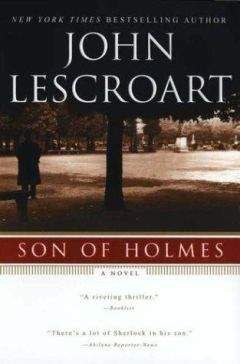John Blaine - The Boy Scouts In Russia
"That's to be seen," said Ernst, with a shrug of the shoulders. "In war who can tell? We take our chances, we who live by the sword. If a Russian is to get me, he will do so, and it will not help to be afraid, or to think of the chances that I may not see the end of what has been begun to-night! We have been getting ready for years. Now we shall know before long if we have done enough. The test has come for us of the fatherland."
And then Fred said a bold thing.
"I can wish you good luck and a safe return, Lieutenant," he said. "But I can't wish that your country may be victorious because my mother, after all, was a Russian."
"I wouldn't ask that of you," said Ernst, with a laugh. "Even though it is Prince Suvaroff's country, too?"
"There are Germans you do not like, I suppose-who are even your enemies," said Fred. "Yet now you will forget all that, will you not?"
"God helping us, yes!" said Ernst. "You are right. Your heart must be with your own. But you don't seem like a Russian, or I would not be helping you."
Then Fred was off, going on his way into the darkness alone. Ernst had told him which road to follow, telling him that if he stuck to it he would not be likely to run into any troop movements.
"Don't see too much. That is a good rule for one who is in a country at war," he had advised. "If you know nothing, you cannot tell the enemy anything useful, and there will be less reason for our people to make trouble for you. Your only real danger lies in being taken for a spy. And if you are careful not to learn things, that will not be a very great one."
Fred was not at all afraid, as a matter of fact, as he set out. Before he had stepped across the mark that stood for the border he had been hugely depressed. He had been friendless and alone. He had been worse than friendless, indeed, since the only man for many miles about who knew him was his bitter enemy. Now he had found that he could still inspire a man like Ernst with belief in his truthfulness and honesty, and the knowledge did him a lot of good. And then, of course, he had another excellent reason for not being afraid. He was entirely ignorant of the particular dangers that were ahead of him. He had no conception at all of what lay before him, and it does not require bravery not to fear a danger the very existence of which one is entirely without knowledge.
The idea of walking all through the summer night, as Ernst had advised him to do, did not seem bad to him at all. As a scout at home, he had taken part in many a hike, and if few of them had been at night, he was still thoroughly accustomed to being out-of-doors, without even the shelter of a tent or a lean-to. Nor was he afraid of losing his way, for as long as the stars shone above, as they did brilliantly now, he had a sure guide.
Fred wasn't tired, for he had enraged Suvaroff, who had seemingly wanted him to be frightened, by sleeping during the journey to Virballen whenever he could. It had been comfortable enough on the train; he had not been treated as a prisoner, but as a guest. And he had, as a matter of fact, been aroused only an hour before the train had reached the frontier.
So he had been able to start out boldly and confidently. In the country through which he was now tramping the nights are cool in summer, but the days are very hot. So Fred had made up his mind, as soon as he understood that he had a good deal of walking before him, to do as much of his traveling as was possible by night, and to sleep during the day. In East Prussia, as in some parts of Canada, the summer is short and hot; the winter long and cold.
There was nothing about the silent countryside, as he tramped along an excellent road, to make him think of war. The fields about him seemed to be planted less with grain; they were very largely used for pasture, and he saw a good many horses. He remembered now that this was the great horse breeding district of Germany. Here there were great estates with many acres of rolling land on which great numbers of horses were bred. It was here, he knew, that the German army, needing great numbers of horses every year, found its mounts.
"They'll need more than ever now," he thought to himself. "If there's really to be war, I suppose they'll take every horse that's able to work at all, whether it's a good looking beast or not. Poor horses! They don't have much chance, I guess."
He thought of the Cossacks he had seen in Russia, wiry, small men, in the main, mounted on shaggy, strong, little horses, no bigger in reality than ponies. He had heard of the prowess of the Cossacks, of course. They had fought well in the past in a good many wars. But somehow it seemed rather absurd to match them, with their undersized horses, against magnificent specimens of men and horseflesh such as the German cavalry. He had passed a squadron of Uhlans, near Virballen, outlined against the sky. They had been grim and business-like in appearance. But then the Cossacks were that, too, though in an entirely different way.
"I wish I had someone along!" he thought, at last.
That was when the dawn was beginning to break. Off to the east the sun was beginning to rise, and in the grey half light before full day there was something stark and gaunt about the country. Before him smoke was rising, probably from a village. But that sign of human habitation, that certain indication that people were near, somehow only made him feel lonelier than he had been in the starlit darkness of the night. This would be good enough fun, if only one of his many friends back home were along-Jack French, or Steve Vedder. It was with them that he had shared such adventures in the past. And yet not just such adventures, either. This was more real than anything his adventures as a Boy Scout had brought him, though he belonged to a patrol that got in a lot of outdoor work, and that camped out every summer in a practical way.
Being alone took some of the zest out of what had seemed, once Lieutenant Ernst's loan had saved him from his most pressing worry, likely to be a bully adventure. Now it seemed rather flat and stale. But that was partly because having tramped all night, he was really beginning to be tired. So he went on to the village, and there he found a little inn, where he got a good breakfast and a bed, in which, as soon as he had eaten his meal, he was sound asleep.
Few men were about the village when he went in. He had noticed, however, the curious little throng, early as it was, about a bulletin ominously headed, "Kriegzustand!" That meant mobilization and war. The men had answered the call already, all except those who were too old to spring to arms at once. Some of the older ones, he knew, would be called out, too, for garrison duty, so that younger men might go to the front.
In his sleep he had many dreams, but the most insistent one was made up of the tramp of heavy feet and the blowing of bugles and the rattling of horses' feet. And this wasn't a dream at all, for when he awoke it was to find a soldier shaking him roughly by the shoulders, and ordering him to get up. And outside were all the sounds of his dream. The sun was high for he had been asleep for several hours. So he got up willingly enough, and hurried his dressing because he remembered what Ernst had told him. Then he followed the soldier downstairs, and found himself the prisoner in an impromptu sort of court-martial.
Really, it wasn't as bad as that. Considering that he had no passports and nothing, in fact, to show who he was, and that no responsible person could vouch for him, he was very lucky. It was because he was a boy, and obviously an American boy, that he got off so easily. For after he had answered a few questions, a major explained the situation to him very punctiliously.
"You must be detained here for two or three days," said the major. "This is an important concentration district, and many things will happen that no foreigner can be allowed to see. We believe absolutely that you are not unfriendly, and that you have no intention of reporting anything you might chance to learn to an enemy. But in time of war we may not take any risks, and you will, therefore, be required to remain in this village under observation.
"Within the village limits you will be as free as if you were at home, in your own country. You will not be allowed to pass them, however, and if you try to do so a sentry will shoot you. As soon as certain movements are completed, you will be at liberty to pass on, on your way to Koenigsberg. I will add to Lieutenant Ernst's advice. When you reach Koenigsberg, after you have reported yourself to the police, wait there until a train can take you to Berlin. It will mean only a few days of waiting, for at Koenigsberg there are already many refugees, and the authorities want to get them to Berlin as soon as the movements of troop trains allow the railway to be reopened for passenger traffic."
Fred agreed to all this. There was nothing else for him to do, for one thing, and, for another, he was by no means unwilling to see whatever there might be to be seen here. He could guess by this time that without any design he had stumbled on a spot that was reckoned rather important by the Germans, for the time being at least, and he had heard enough about the wonderful efficiency of the German army to be anxious to see that mighty machine in the act of getting ready to move.
He did see a good deal, as a matter of fact, that day and the next. It was on the famous Saturday night of the first of August that he had left Virballen. Sunday brought news of a clash with France, far away on the western border, and of the German invasion of Belgium. Monday brought word of a definite declaration of war between Germany and France, and of the growing danger that England, too, might be involved.
And all of Sunday and all of Monday supplies of all sorts poured through the little village in an unceasing stream. Motor cars and trucks were to be seen in abundance, and Fred caught his first glimpse, which was not to be his last, of the wonderful German field kitchens, in the mighty ovens of which huge loaves of bread were being baked even while the whole clumsy looking apparatus was on the move. But it only looked clumsy. Like everything else about the German army, this was a practical and efficient, well tried device.
Then suddenly, early on Tuesday, he was told that he was free to go, or would be by nightfall. And that day all signs of the German army, save a small force of Uhlans, vanished from the village. That evening, refreshed and ready for the road again, Fred set out. And that same evening, though he did not know it until the next day, England entered the war against Germany. CHAPTER III
A STRANGE MEETING
As he walked west Fred noticed, even in the night, a change in the country. It was not that he passed once in a while a solitary soldier guarding a culvert, as he neared a railway, or a patrol, with its twinkling fire, watching this spot or that that needed special guarding. That was part of war, the part of war that he had been able to foresee. It wasn't anything due to the war that made an impression on his mind so much as a sort of thickening of the country. Though he had traveled so short a distance from the Russian border, there seemed to be more people about.
Great houses, rising on high ground, with small, contented looking villages nestling, as it were, under their protection, were frequent. He was, as a matter of fact, in a country of great aristocratic landholders, the great nobles of Prussia, the men who are the real rulers of the country, under the Prussian King, who is also the German Kaiser. And in many of these great houses lights were burning, even after midnight, when all signs of life in the villages had ceased. The country was stirring, and there was more of it to stir. Now from time to time he heard the throbbing hum of an automobile motor. Only one or two of these passed him, going in either direction, on the road along which he was traveling. But there were parallel roads, and he could hear the throbbing motors on these, and often see the pointing shafts of light from their lights, searching out the road before them as they sped along.
Fred knew enough of Germany to understand something of what he saw and heard. It was from these great houses that a great many officers were contributed to the army. These young men had no real career before them from their birth, almost, except in the army. So it was easy to guess why the lights were burning in those mansions, and why there was anxiety among them, and why the throbbing motor cars were humming over the roads.
If Germany were beaten back in the beginning, if the task she had undertaken proved too heavy, this was the province that was sure to feel the first brunt of invasion. Behind him, to the east, Fred knew were the great masses of Russia, moving slowly, but with a terrible, always increasing force. No wonder these people were stirring, were sending out all their men to drive back the huge power that lay so near them, a constant menace!
But now, though he did not know it, Fred was approaching real danger for the first time. Many of the motors he saw and heard were going west. Though he could not guess it, they were carrying women and children away from the old houses that were too much exposed, too directly in the path of a possible invasion for the helpless ones to be left in them when the men had gone to fight. All Germany had to be defended. It happened to be the part of East Prussia to bear invasion, if it came to that.
And so the people of the great houses were making their migration. The men went to their regiments; the women to Berlin, and to the great fortresses that lay nearer than Berlin-Koenigsberg, Danzig, Thorn. This was historic country that Fred was traversing, the same country that had trembled beneath the thundering march of Napoleon's grand army more than a hundred years before, when the great Emperor had launched the mad adventure against Russia that had sealed his fate.
But he didn't think of these things, except of Napoleon, as he trudged along. Once more he traveled through the night. Once more, as the first signs of morning came, he began to feel tired, and, despite the food he had carried with him which he had stopped to eat about midnight, he was hungry. And, as had been the case on the night of his tramp from Virballen, the first rays of the rising sun showed him a village. It was in a hollow, and above it the ground rose sharply to a large house, evidently very old, built of a grey stone that had been weathered by the winds and rains of centuries. It was a very old house, and strangely out of tune, it seemed to Fred, with the country though not with the times. It was so old that it showed some traces of fortification, and Fred knew how long it was since private houses had been built with any view to defence. It was a survivor of the days when this whole region had been an outpost of civilization against hordes of barbarian invaders.
One curious thing he noticed at once about the great house. No flag was flying from it, though it boasted a sort of turret from which a flag might well have been flung out to the wind. All the other big houses he had seen had had flags out and the absence of a standard here seemed significant, somehow.
When he entered the village he found that there was no inn. He saw the usual notice of mobilization and the proclamation of war, but the people were not stirring yet. He had to wait for some time before he found a house where people were up. They looked at him curiously, but grudgingly consented to give him breakfast. There was an old man, and another who was younger, but crippled. And this cripple was the one who seemed most puzzled by Fred's appearance in the place. He surveyed him closely and twice Fred caught him whispering, evidently about him.




